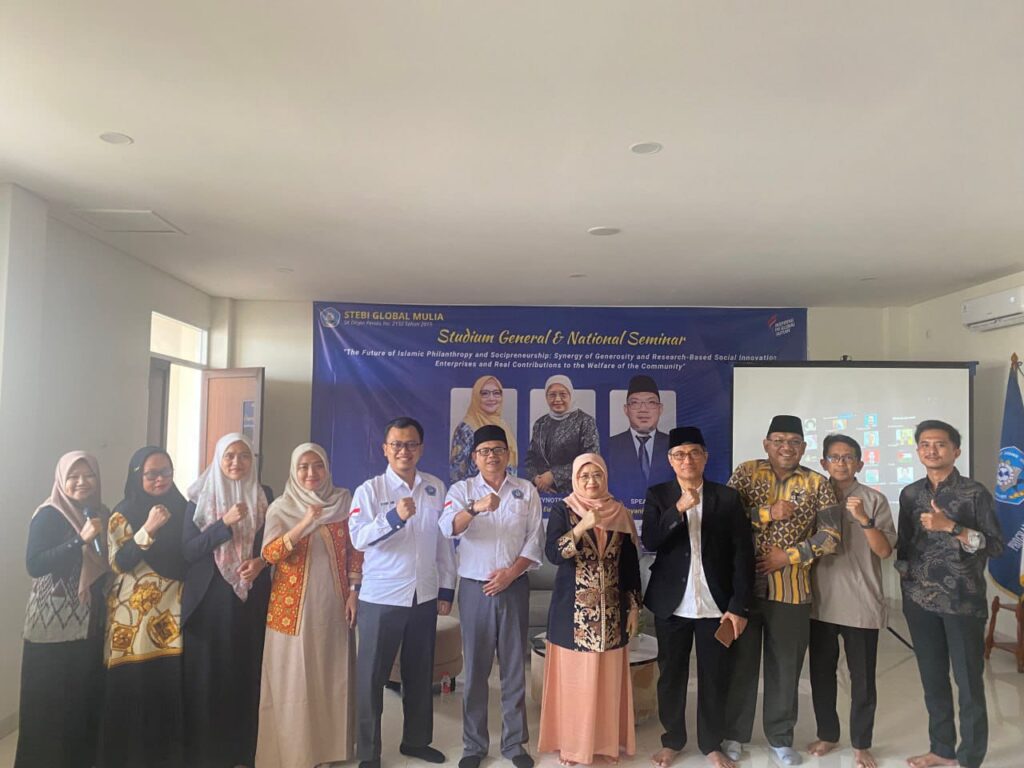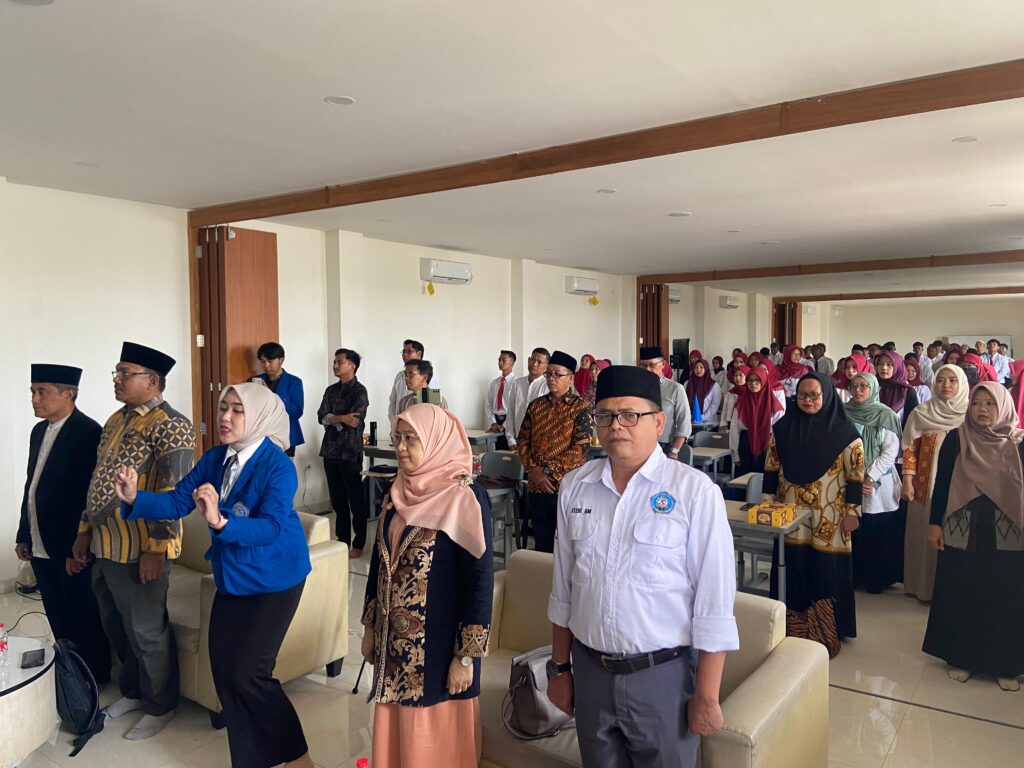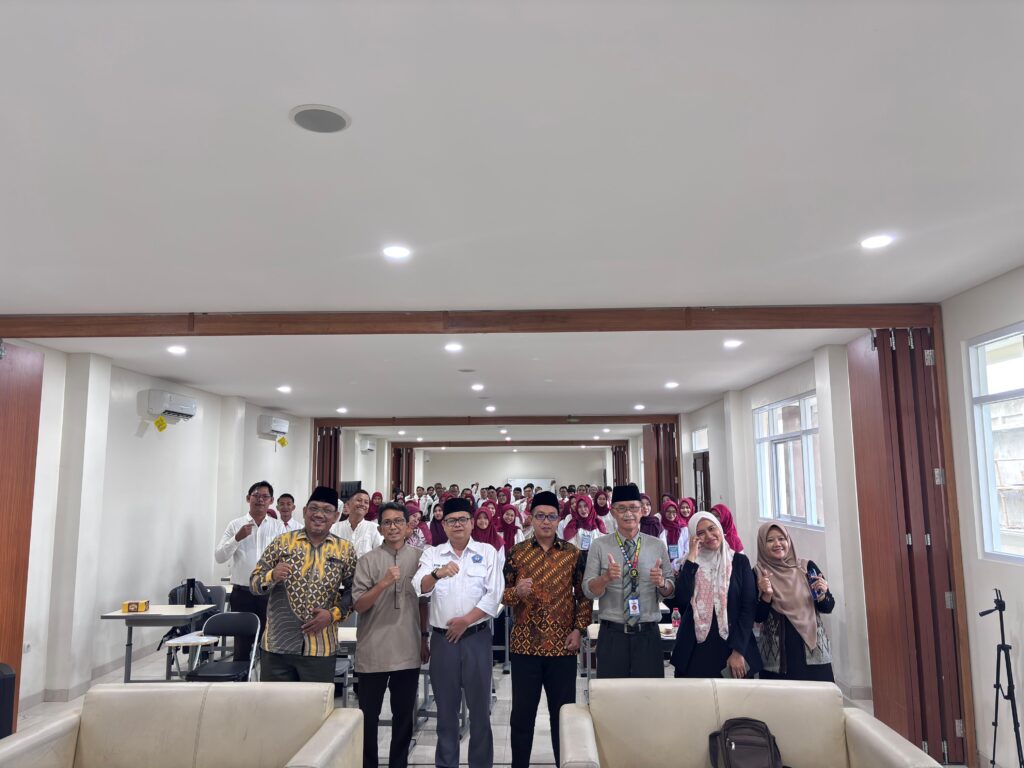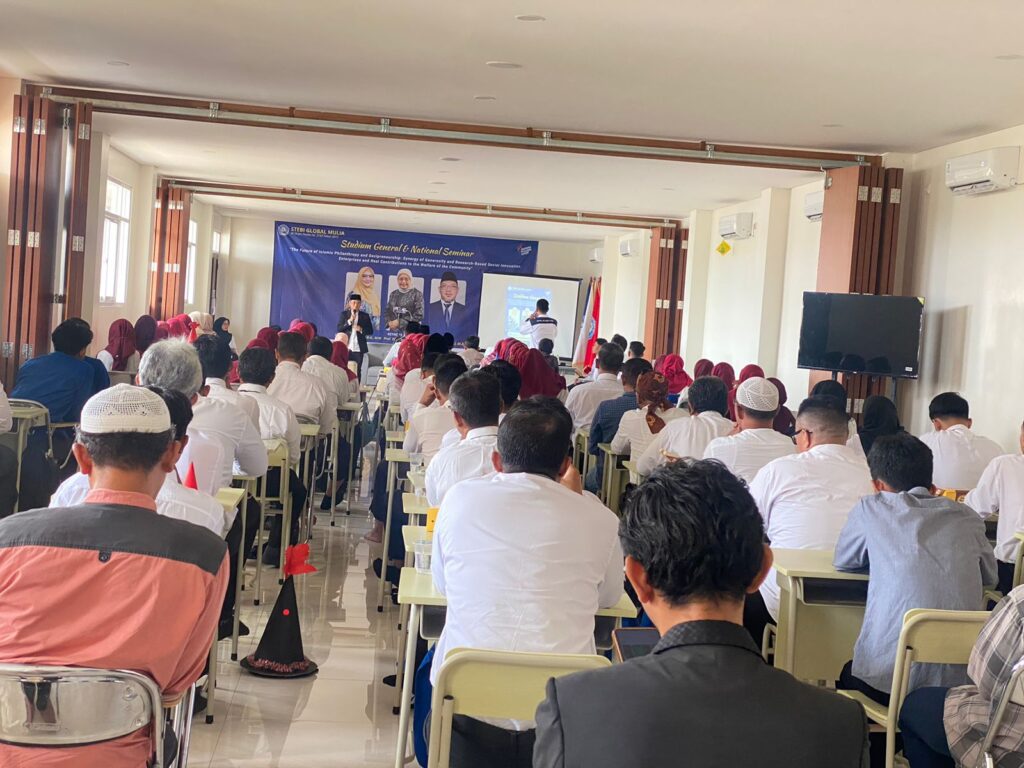
Cikarang, September 20, 2025 – STEBI Global Mulia Cikarang successfully held a Studium Generale and National Seminar with the theme “The Future of Islamic Philanthropy and Sociopreneurship.” The hybrid event took place at the Auditorium of Building E, STEBI Global Mulia, with online participation via Zoom, and was attended by more than 300 participants consisting of new students, senior students, alumni, lecturers, and the general public.
In his remarks, the Chairman of Yayasan Global Insan Mulia, K.H. Teguh Wibowo, S.E., M.Si., M.M., emphasized that Bekasi, as the largest industrial area in Indonesia and Southeast Asia, must be able to provide solutions to the nation’s paradox: abundant natural resources but unevenly distributed prosperity. “This is why Islamic philanthropy and sociopreneurship are important—not only as instruments of worship but also as tools of social transformation and equitable welfare,” he stated. He also conveyed his hope to the new government that fiscal policies would be more supportive of the people, MSMEs, and the development of the Islamic economy.
The keynote speaker, Prof. Dr. Euis Amalia, M.Ag. (Professor of Islamic Economics, UIN Jakarta), presented Indonesia’s enormous potential in zakat, infaq, sadaqah, and waqf (ZISWAF), which amounts to around IDR 300 trillion per year. According to her, philanthropy must be shifted from merely consumptive charity to productive sociopreneurship that fosters independence. She also stressed the importance of green philanthropy, such as waqf for urban forests or renewable energy.
In the panel session, Dr. H. Royani, S.Th.I., M.A. reminded that zakat and waqf should be managed according to contemporary Islamic economic law principles so that community funds do not stop at consumption but are directed toward productive ventures. Meanwhile, Dr. Ir. Srikandi Utami, MBA, MM introduced the concept of Social Innovation Enterprise (SIE), a business model that combines commercial goals with social missions. She highlighted successful examples such as the Bank Wakaf Mikro in Islamic boarding schools and Dompet Dhuafa’s social enterprises, which empower MSMEs and farmers. “With digitalization, anyone can donate starting from just IDR 10,000. Imagine if students of this campus could create a sociopreneurship platform,” she said.
Participants also shared positive impressions. A new undergraduate student admitted to feeling more confident in studying at STEBI Global Mulia after learning that zakat could be transformed into business capital. Meanwhile, a prospective master’s student who works as an HRD officer in a company expressed that the seminar opened new insights into potential collaborations between corporations and zakat institutions.
The Rector of STEBI Global Mulia, Dr. Yoyo Hambali, M.A., closed the event by affirming that STEBI must become a center of research, business, and entrepreneurship based on Islamic economics. “In the future, STEBI will not only be known for its graduates but also for the ideas, research, and real ventures born from its students and lecturers,” he said.
The success of this event could not be separated from the solid teamwork of the organizing committee. Anggi Setya Prayoga, S.Kom., M.M., as Vice Rector I, ensured the academic direction and student involvement, while Hernanda Dian Rahajeng, S.E., M.M., as Vice Rector II, supported the administrative and financial aspects. Akbar Kurniawan, S.E., as the Head of the Committee, led the technical coordination to ensure the event ran smoothly. With the participation of more than 300 attendees and the support of the Harmony GM Student Choir, this event reaffirmed STEBI Global Mulia’s position as a hub for discussion, research, and innovation in Islamic economics.
STEBI Global Mulia Public Relations Contact
Address: Jl. Untung Suropati, Mekarmukti, Cikarang Utara, Bekasi
Phone: (021) 89323055
WhatsApp: +62 896-3633-5094
Email: stebi@globalmulia.ac.id
Instagram: @pmb.stebiglobalmulia
YouTube: STEBI Global Mulia TV



